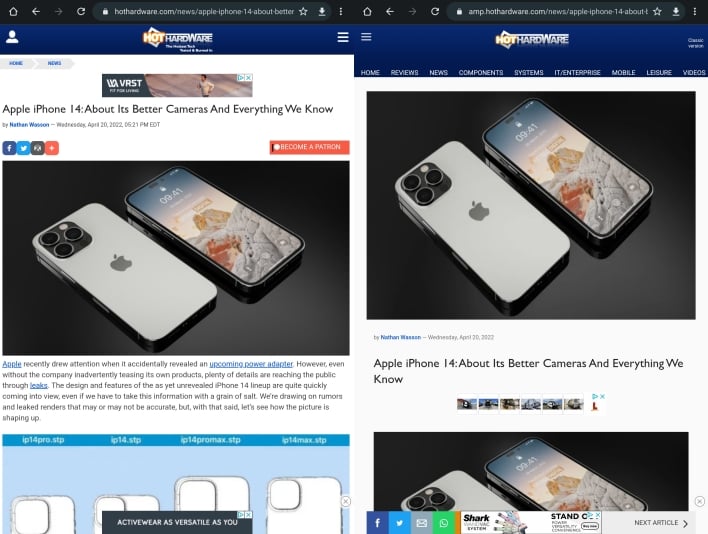Brave And DuckDuckGo Are Trying To Kill Google's AMP Tracking In Privacy Push
This week, two privacy oriented browser and search engine companies announced efforts to push back against the growth of AMP in the name of privacy. Brave announced a new feature for the Brave web browser called “De-AMP.” De-AMP is currently available in Nightly and Beta version of Brave browser. However, once De-AMP is enabled by defaulted in version 1.38 for desktop and Android, it will employ a number of techniques to direct users to webpages on the publisher’s website, rather than AMP webpages hosted by Google.
Brave’s announcement of De-AMP argues that AMP is harmful to privacy, is bad for security, and furthers the monopolization of the Web. “AMP gives Google an even broader view of which pages people view on the Web, and how people interact with them … AMP gives Google an even broader view of which pages people view on the Web, and how people interact with them … AMP encourages more of the Web to be served from Google’s servers, under Google’s control and arbitrary non-standards. It also allows Google to require pages to be built in ways that benefit Google’s advertising systems.”
DuckDuckGo also announced the roll out of an anti-AMP feature for its browser (currently on iOS and Android, but coming to Mac) and extension. The DuckDuckGo browser and extension will load the publisher’s regular webpage when users load or share an AMP webpage. DuckDuckGo’s announcement included the following statement: “AMP technology is bad for privacy because it enables Google to track users even more (which is already a ton). And, Google uses AMP to further entrench its monopoly, forcing the technology on publishers by prioritizing AMP links in search and favoring Google ads on AMP pages.”
Google has since responded to Brave and DuckDuckGo’s announcements with it’s own statement: “These allegations are misleading, conflate a number of different web projects and standards, and repeat a number of false claims. AMP is an open source framework that was collaboratively developed with publishers, tech companies, and Google as a way to help web content load faster–at the time it was created, it took 19 seconds on average to load a mobile webpage on a 3G connection. Today, AMP continues to be a helpful way for websites and publishers–especially those without large development teams– to easily create great web experiences.”


